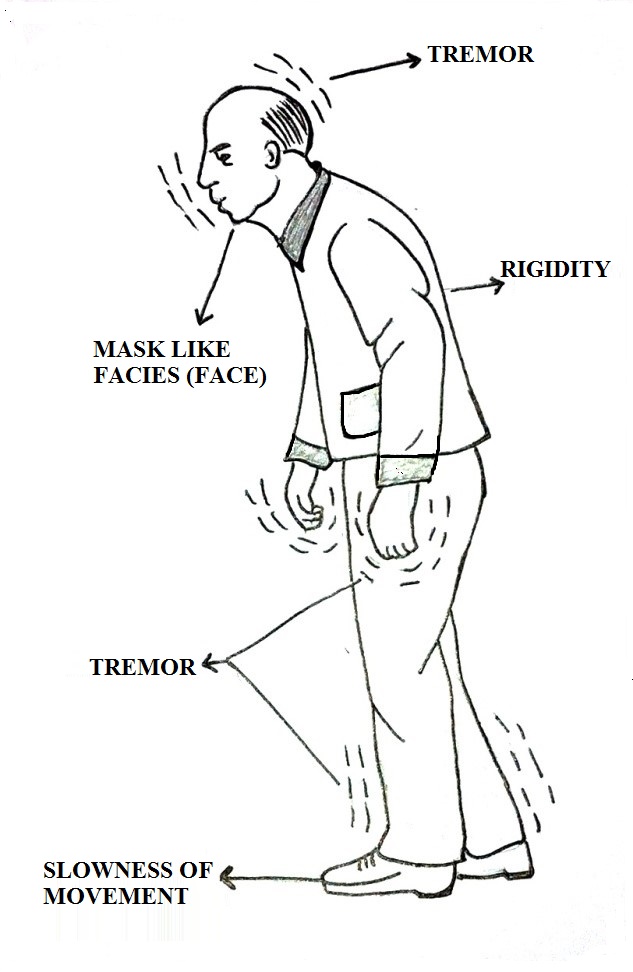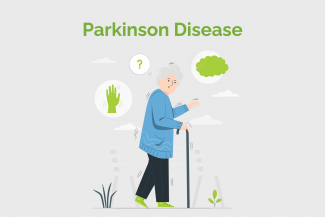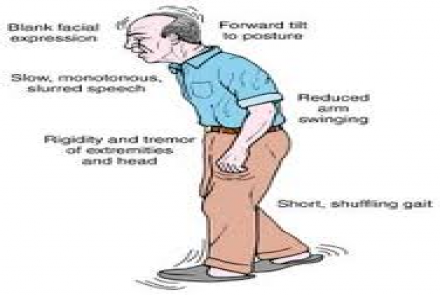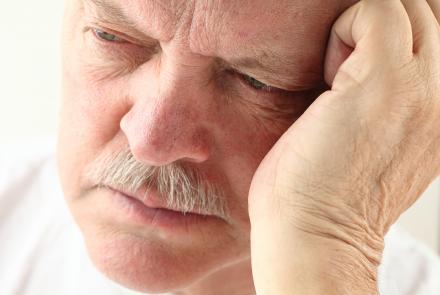Parkinson’s disease is a progressive neurological disorder caused by malfunction and death of nerve cells (neurons) in the brain. Because of the death of nerve cells, people with Parkinson’s don’t have enough of the chemical Dopamine. This causes their movements to slow down. Symptoms get worse over time.
An estimated 7 to 10 million people worldwide are living with Parkinson’s Disease. These numbers are projected to escalate sharply as more people live longer.

Symptoms vary from person to person. Which symptom will affect you, in which order and how your symptoms may progress are difficult to predict.
Parkinson symptoms are often categorised as Motor and Non-motor.
Motor symptoms are essentially due to akinesia (poverty of action, difficulty initiating movements,) and bradykinesia (slow movements). The following are some of the symptoms and signs seen:
- Tremor in Parkinson’s can be of 2 types, either a resting tremor or an action tremor. Resting tremor occurs when the body is still and relaxed and action tremor occurs when doing physical action. Pin rolling tremor of the fingers is often seen.
- Unwanted rapid movements as inability to slow down. Seen in speech and gait.
- Gait disturbances, shuffling walk with small steps because there is difficulty in lifting of the feet. Freezing of gait is commonly seen where a person temporarily feels as if his/her feet are glued to the floor. They hesitate before stepping ahead and this occurs when a patient is starting to walk, crossing, approaching a chair etc. This freezing is serious as it can increase the risk of falling.
- Difficulty chewing and swallowing which can cause excess saliva and drooling.
- Gradual shrinking of handwriting called micrographia, which can serve as an early detection tool.
- Mask-like face due to stiffness of facial muscles.
- Speech impairment - stammer or stuttering and soft voice.
- Rigidity such as precision grip where a grip is formed by the index finger and thumb to hold small objects.
- Stooped or leaning forward posture.
- Poor small and gross motor movement and coordination like no arm swinging while walking.
- Sexual dysfunction.
Non-motor symptoms are often the early indicators of disease before the onset of motor symptoms. These include:
- Gastrointestinal issues such as reflux and constipation
- Urinary problems with difficulty in urination
- Dizziness and faintness due to sudden drop in blood pressure when standing up from a lying down position, also called postural hypotension.
- Loss of smell
- Sleep disturbances (REM sleep behaviour disorder) and restless leg syndrome.
Psychiatric symptoms:
- Mood changes like depression, anxiety, irritability
- Memory and thinking problems
- Dementia
References:
https://www.parkinsons.org.uk/

Changed
28/Jun/2024
Condition











